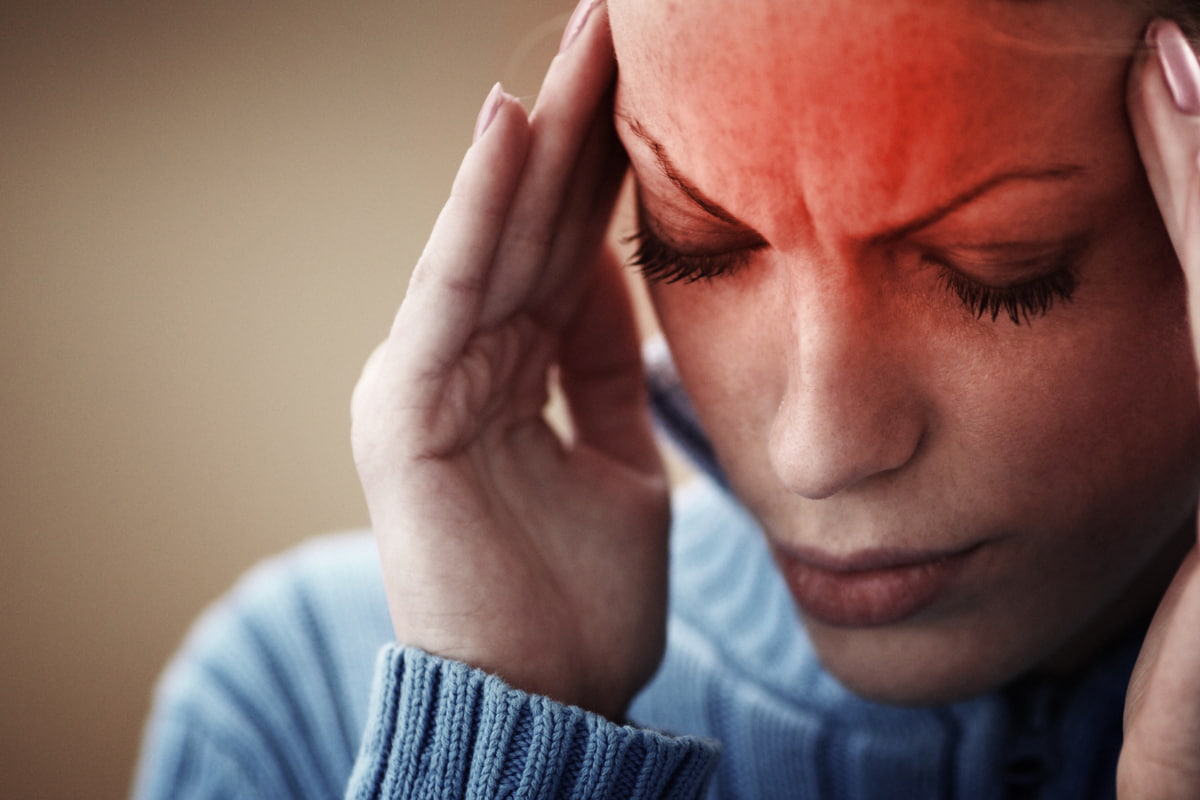Menopause headaches are a common experience for women as they transition through this significant hormonal change. Join us as we delve into the causes, types, and management strategies for these headaches, empowering you with the knowledge to navigate this phase of life with greater ease.
Menopause brings about a cascade of physiological changes that can manifest in various symptoms, including headaches. Understanding the underlying mechanisms will provide a solid foundation for exploring the diverse types of headaches associated with menopause.
Menopause Headaches Overview

Menopause headaches are a common complaint among women during the menopausal transition, which typically occurs between the ages of 45 and 55. The prevalence of menopause headaches varies widely, with estimates ranging from 20% to 60% of women experiencing them.
The physiological changes that occur during menopause, such as the decline in estrogen and progesterone levels, are believed to contribute to the development of headaches. Estrogen and progesterone are known to have an effect on blood vessel function, pain perception, and mood, all of which can play a role in the development of headaches.
[detailed content here]
Types of Menopause Headaches
Menopause headaches can manifest in various forms, each with distinct characteristics and severity. Understanding the different types can help in effective management and treatment.
Migraines
- Intense, throbbing headaches, often accompanied by nausea, vomiting, and sensitivity to light and sound.
- Can last for several hours or even days.
- Hormonal fluctuations during menopause can trigger or worsen migraines.
Tension Headaches
- Dull, aching headaches that feel like a tight band around the head.
- Less severe than migraines, but can be chronic and persistent.
- Stress, anxiety, and hormonal changes can contribute to tension headaches.
Cluster Headaches
- Severe, debilitating headaches that occur in clusters, with multiple headaches occurring over a short period.
- Characterized by intense pain around one eye, accompanied by watering, redness, and nasal congestion.
- Rare but can be triggered by hormonal changes during menopause.
Causes of Menopause Headaches

Menopause headaches are a common symptom experienced by many women during the menopausal transition. While the exact cause of these headaches is not fully understood, several potential factors are believed to contribute to their occurrence.
Hormonal Fluctuations
One of the primary causes of menopause headaches is hormonal fluctuations. During menopause, the levels of estrogen and progesterone in the body decline significantly. These hormonal changes can affect the blood vessels in the brain, leading to constriction and dilation, which can trigger headaches.
Vasomotor Symptoms
Vasomotor symptoms, such as hot flashes and night sweats, are another common experience during menopause. These symptoms are caused by the body’s attempts to regulate its temperature, which can lead to changes in blood flow and blood pressure. These fluctuations can also contribute to headaches.
Sleep Disturbances
Sleep disturbances are a frequent issue during menopause, often due to hormonal changes and vasomotor symptoms. Poor sleep quality can lead to increased sensitivity to pain, including headaches.
Impact of Menopause Headaches
Menopause headaches can significantly impact various aspects of life for those experiencing them.
One of the most significant impacts is on quality of life. The pain and discomfort associated with these headaches can disrupt daily activities, making it challenging to participate in social events, work, or even perform basic household tasks. This can lead to feelings of isolation and frustration.
Daily Activities
Menopause headaches can interfere with daily activities by causing:
- Difficulty concentrating
- Reduced productivity
- Absenteeism from work or school
- Avoidance of social activities
Emotional Well-being
In addition to their physical impact, menopause headaches can also have a negative impact on emotional well-being. The pain and disruption to daily life can lead to:
- Mood swings
- Irritability
- Anxiety
- Depression
Diagnosis and Treatment of Menopause Headaches
Menopause headaches can be diagnosed based on a medical history and physical examination. The doctor will inquire about the patient’s symptoms, menstrual history, and any other relevant medical conditions. The doctor may also order blood tests to rule out other potential causes of the headaches.
Treatment options for menopause headaches include:
Hormone Replacement Therapy
- Hormone replacement therapy (HRT) can help to reduce the severity and frequency of menopause headaches. HRT involves taking estrogen and progesterone to replace the hormones that are lost during menopause.
- HRT can be taken in various forms, including pills, patches, and injections.
- The doctor will determine the best type and dose of HRT based on the patient’s individual needs.
Medications
- Over-the-counter pain relievers, such as ibuprofen or acetaminophen, can be used to relieve mild to moderate menopause headaches.
- Prescription medications, such as triptans or ergotamines, may be necessary for more severe headaches.
- The doctor will prescribe the most appropriate medication based on the patient’s symptoms and medical history.
Lifestyle Modifications
- Lifestyle modifications, such as getting regular exercise, eating a healthy diet, and getting enough sleep, can help to reduce the frequency and severity of menopause headaches.
- Stress management techniques, such as yoga, meditation, or deep breathing exercises, can also be helpful.
- Keeping a headache diary can help the patient and doctor to identify triggers and develop a personalized treatment plan.
Self-Management Strategies for Menopause Headaches
Menopause headaches can be effectively managed with self-care strategies that focus on reducing stress, improving sleep, and maintaining a healthy diet. These measures help regulate hormone levels, improve overall well-being, and minimize the frequency and severity of headaches.
Managing Stress
Stress can trigger menopause headaches. Engage in stress-reducing activities such as yoga, meditation, or deep breathing exercises. Identify and manage stressors, and consider seeking professional help if needed.
Improving Sleep
Poor sleep can worsen menopause headaches. Establish a regular sleep-wake cycle, even on weekends. Create a relaxing bedtime routine, and ensure your bedroom is dark, quiet, and cool.
Maintaining a Healthy Diet
Eating a healthy diet can help manage menopause headaches. Focus on consuming fruits, vegetables, and whole grains. Limit caffeine and alcohol intake, as they can dehydrate and worsen headaches.
When to Seek Medical Attention for Menopause Headaches

Menopause headaches can often be managed with self-care measures. However, it is important to seek medical attention if you experience certain symptoms that may indicate a more serious underlying condition.
Severe or Persistent Headaches
If your menopause headaches are severe or persistent, it is advisable to seek medical attention. Severe headaches can be debilitating and interfere with your daily activities. Persistent headaches, even if not severe, can also be a sign of an underlying medical condition.
Headaches Accompanied by Other Symptoms
Headaches that are accompanied by other symptoms, such as fever, nausea, vomiting, or neurological symptoms (e.g., weakness, numbness, or vision changes), require medical attention. These symptoms may indicate a more serious underlying condition, such as a brain tumor or stroke.
FAQ Compilation
What are the common types of menopause headaches?
Menopause headaches can manifest as migraines, tension headaches, or cluster headaches.
What are the primary causes of menopause headaches?
Menopause headaches are primarily caused by hormonal fluctuations, vasomotor symptoms, and sleep disturbances.
How can I self-manage menopause headaches?
Self-management strategies include stress management, improving sleep, and maintaining a healthy diet.
When should I seek medical attention for menopause headaches?
Seek medical attention if headaches are severe or persistent, or if accompanied by other concerning symptoms.